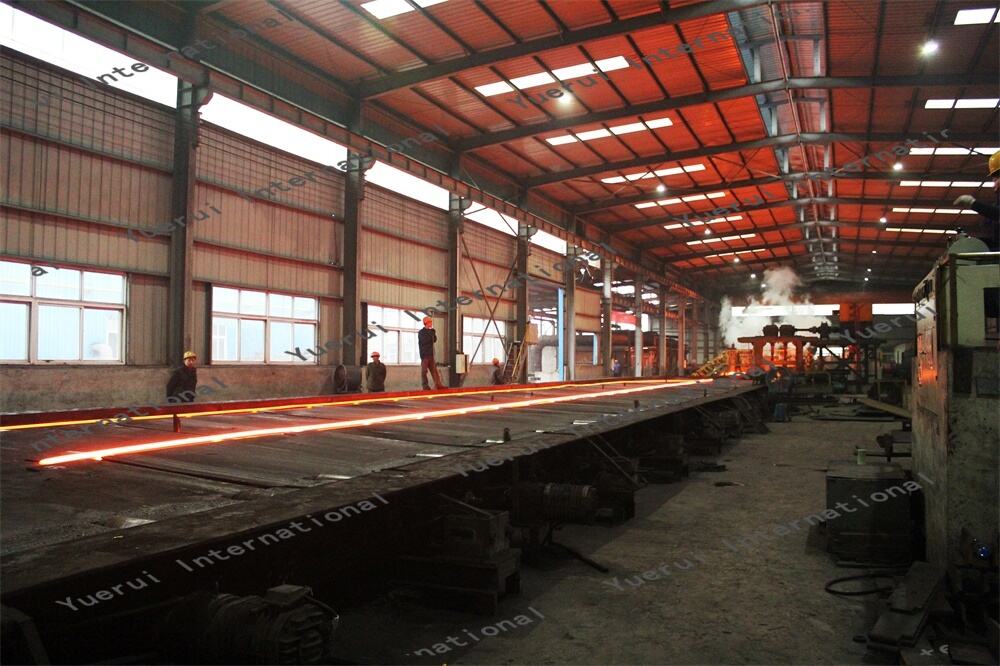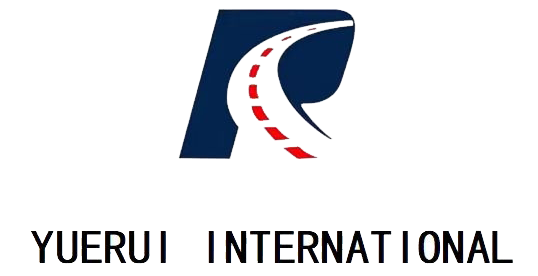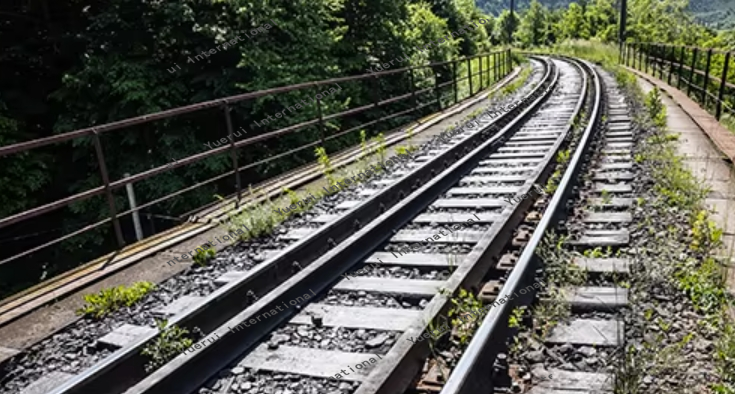The Strategic Value of Professional Railway Supply Partnerships
The railway industry stands as one of the most critical components of global transportation infrastructure, demanding nothing less than excellence in equipment and maintenance. Partnering with established railway equipment suppliers has become increasingly vital for companies seeking to maintain competitive advantage and operational efficiency in the modern rail sector. These partnerships go far beyond simple transactions – they represent strategic alliances that can dramatically influence a company's success in the rapidly evolving transportation landscape.
As rail networks continue to expand and modernize worldwide, the role of experienced railway equipment suppliers has become more crucial than ever. These specialists bring decades of industry knowledge, cutting-edge technology, and comprehensive support systems that can make the difference between mediocre performance and exceptional results. Understanding the full scope of benefits that come with such partnerships is essential for any organization involved in rail operations.
Core Benefits of Collaborating with Industry Veterans
Technical Expertise and Innovation Leadership
Established railway equipment suppliers bring unparalleled technical expertise to the table. Their years of experience in the field translate into deep understanding of equipment specifications, safety requirements, and operational nuances that newer market entrants simply cannot match. This expertise becomes particularly valuable when dealing with complex integration projects or implementing cutting-edge technologies.
Moreover, veteran suppliers often lead the charge in innovation, investing heavily in research and development to create more efficient, sustainable, and cost-effective solutions. They understand the industry's evolution and can anticipate future needs, helping their partners stay ahead of the curve in terms of technological advancement and operational efficiency.
Quality Assurance and Compliance Standards
Working with experienced railway equipment suppliers ensures adherence to the highest quality standards and regulatory requirements. These suppliers maintain rigorous quality control processes and hold necessary certifications, reducing the risk of equipment failures and compliance issues. Their thorough understanding of international safety standards and regulations helps partners navigate complex regulatory landscapes with confidence.
Furthermore, established suppliers typically offer comprehensive warranty programs and quality guarantees that protect their partners' investments. This level of assurance is particularly valuable given the significant capital expenditure involved in railway equipment procurement.

Supply Chain Reliability and Support Systems
Robust Supply Chain Networks
One of the most significant advantages of partnering with experienced railway equipment suppliers is access to their well-established supply chain networks. These suppliers have built reliable relationships with manufacturers and sub-suppliers worldwide, ensuring consistent access to critical components and materials. This reliability becomes especially valuable during supply chain disruptions or when rapid scaling is required.
Their global presence and extensive distribution networks also mean faster delivery times and more flexible logistics solutions. This can significantly reduce downtime and inventory carrying costs for partner companies, leading to more efficient operations overall.
Comprehensive After-Sales Support
Professional railway equipment suppliers understand that their responsibility extends far beyond the initial sale. They provide comprehensive after-sales support, including maintenance services, technical assistance, and spare parts availability. This ongoing support helps maintain equipment performance and extends its operational lifespan, maximizing return on investment.
Training programs and documentation provided by these suppliers ensure that partner companies' staff can operate and maintain equipment effectively, reducing the risk of operational issues and improving overall safety standards.
Long-term Cost Benefits and ROI
Total Cost of Ownership Advantages
While initial procurement costs from established railway equipment suppliers might seem higher, the total cost of ownership often proves more favorable over time. Quality equipment from reputable suppliers typically requires less maintenance, experiences fewer breakdowns, and lasts longer than cheaper alternatives. This reliability translates into reduced operational costs and minimal unexpected expenses.
Additionally, experienced suppliers often offer financing options and flexible payment terms, helping partners manage cash flow more effectively while still accessing high-quality equipment and services.
Efficiency and Productivity Gains
Working with established railway equipment suppliers leads to significant improvements in operational efficiency. Their equipment is designed for optimal performance and compatibility with existing systems, reducing integration challenges and operational disruptions. The resulting productivity gains can provide a substantial competitive advantage in the market.
These suppliers also regularly update their product lines with more energy-efficient solutions, helping partners reduce operating costs and meet environmental sustainability goals.
Future-Proofing Railway Operations
Technological Integration and Scalability
Experienced railway equipment suppliers stay at the forefront of technological advancement, offering solutions that can integrate with emerging technologies such as IoT sensors, predictive maintenance systems, and automated operations. This forward-thinking approach helps partners prepare for future industry developments and maintain competitive advantage.
Their solutions are typically designed with scalability in mind, allowing partners to expand operations efficiently as their business grows. This flexibility in scaling up or adapting to new requirements provides valuable strategic advantages in a dynamic market environment.
Sustainability and Environmental Compliance
Modern railway equipment suppliers increasingly focus on sustainable solutions that meet growing environmental regulations and social responsibility expectations. Their expertise in green technologies and eco-friendly practices helps partners achieve sustainability goals while maintaining operational efficiency.
These suppliers often lead the way in developing equipment that reduces energy consumption, minimizes environmental impact, and supports the industry's transition toward more sustainable operations.
Frequently Asked Questions
What criteria should companies consider when selecting railway equipment suppliers?
Companies should evaluate suppliers based on their industry experience, technical expertise, quality certifications, financial stability, after-sales support capabilities, and track record of successful partnerships. It's also important to consider their innovation capacity, global presence, and commitment to sustainability.
How do experienced railway equipment suppliers ensure product quality and reliability?
Established suppliers maintain strict quality control processes, conduct rigorous testing procedures, and adhere to international standards and certifications. They typically have dedicated quality assurance teams and implement comprehensive monitoring systems throughout the manufacturing and delivery process.
What advantages do long-term partnerships with railway equipment suppliers offer?
Long-term partnerships provide benefits such as preferential pricing, priority access to new technologies, customized solutions, dedicated support teams, and better understanding of specific operational needs. These relationships often lead to collaborative innovation and improved operational efficiency over time.
How do railway equipment suppliers support sustainability initiatives?
Leading suppliers invest in developing eco-friendly equipment, energy-efficient solutions, and sustainable manufacturing processes. They also provide expertise in implementing green technologies, reducing carbon footprints, and meeting environmental regulations while maintaining operational excellence.
Table of Contents
- The Strategic Value of Professional Railway Supply Partnerships
- Core Benefits of Collaborating with Industry Veterans
- Supply Chain Reliability and Support Systems
- Long-term Cost Benefits and ROI
- Future-Proofing Railway Operations
-
Frequently Asked Questions
- What criteria should companies consider when selecting railway equipment suppliers?
- How do experienced railway equipment suppliers ensure product quality and reliability?
- What advantages do long-term partnerships with railway equipment suppliers offer?
- How do railway equipment suppliers support sustainability initiatives?

